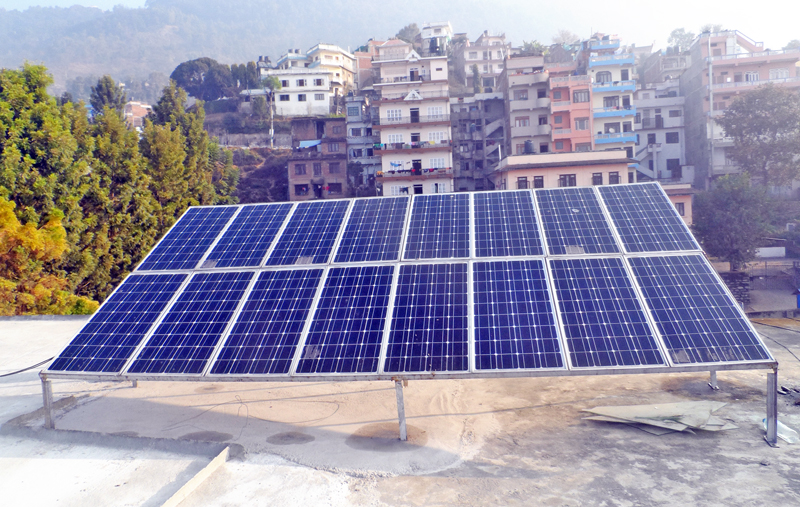Solar micro-grids launched in three remote villages
Kathmandu, March 14
Three remote villages in country’s Okhaldhunga and Khotang districts have just been switched on to round-the-clock power from nearby solar micro-grids that will save money, avoid carbon emissions, and provide the communities with fresh economic opportunities.
The three solar micro-grids, with combined capacity of 35 kilowatts, were installed in the communities of Harkapur in Okhaldhunga district, and Kaduwa and Chyasmitar in Khotang District, as per a statement issued today. They will provide a 24-hour reliable electricity supply to around 540 people in 83 households and 25 local businesses.
“Nearly a quarter of Nepal’s population has no access to electricity and rely heavily instead on kerosene in particular. Since most of them live in remote areas, there is little possibility of connecting to the national power grid in the near future,” said Jiwan Acharya, senior energy specialist at the Asian Development Bank (ADB). “The solar micro-grids that we are piloting here provide a clean, cost-effective, local solution involving private sector that will change the lives of these communities and serve as a model for other far-flung villages.”
Electricity costs for households are forecast at $4 to $6 per month. Currently households relying on kerosene for lighting alone, can pay up to $10 a month. And by using solar power rather than fossil fuels, the project will avoid 41 tonnes of carbon dioxide emissions every year.
The solar micro-grids and battery storage were built by Gham Power Pvt Ltd with local communities with a $100,000 grant from ADB through its ‘Energy for All’ programme and technical and financial assistance from DOEN Foundation and NMB Bank in collaboration with Alternative Energy Promotion Centre.
In addition to meeting household electricity needs, these micro-grids offer energy for productive uses, and create the opportunity for income generation activities. Local industries will now have power for their agro-processing grinding mills and for dairy chillers.
ADB, based in Manila, is dedicated to reducing poverty in Asia and the Pacific through inclusive economic growth, environmentally sustainable growth, and regional integration.






